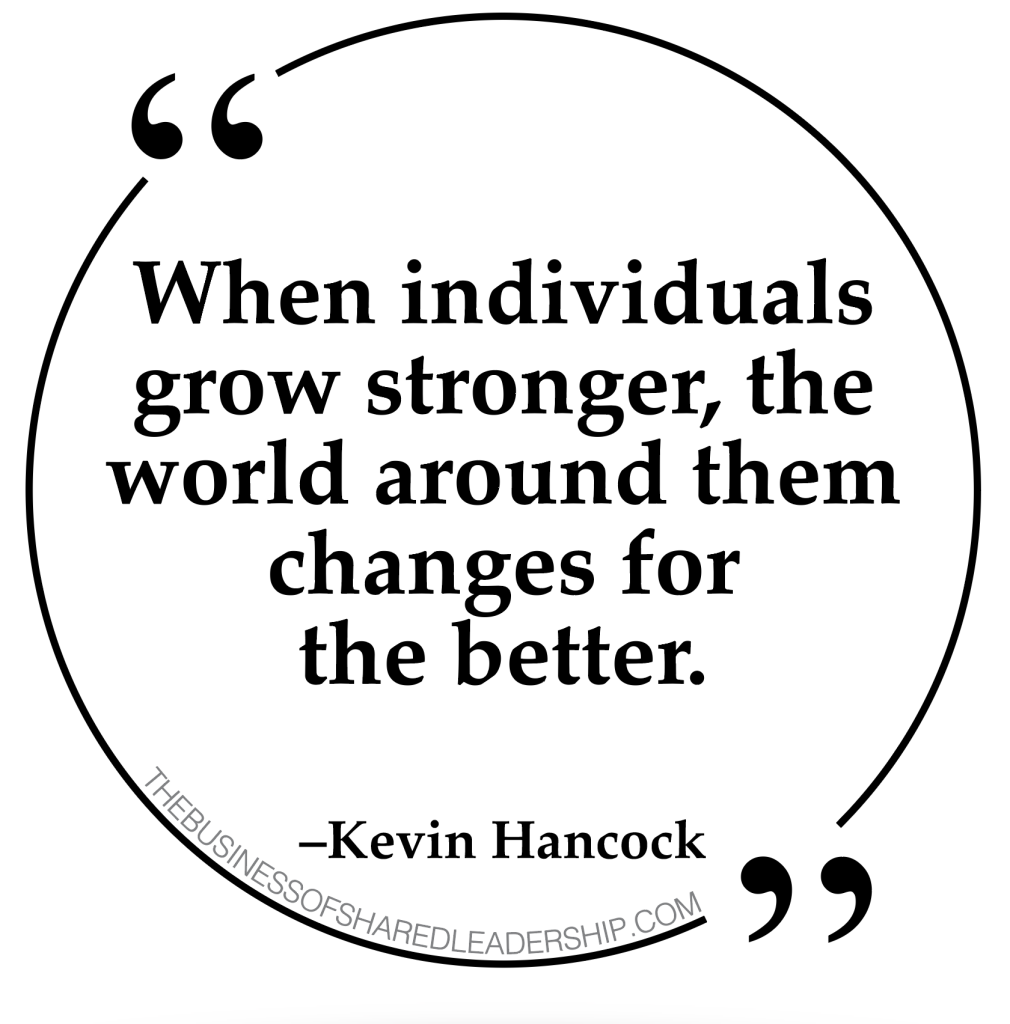The following is an excerpt from my book, The Seventh Power: One CEO’s Journey into the Business of Shared Leadership.
For centuries, societies across the globe have been systematically indoctrinated into the belief system that power, control, and higher authority live “out there” somewhere, beyond our reach, in a faraway capital, with a government leader, a distant God, or a controlling executive. Empires, you see, have most frequently amassed power by convincing individuals to cede some of their own. In the bureaucracies and hierarchies that followed, a few at the center came to speak for the many. Individuals, in turn, were trained to place the needs of headquarters or capitals above their own. The needs of the capital come first. The individual is taught to sacrifice and serve.
But the Lakota understanding of a Seventh Power represents a fresh path, born from ancient wisdom, in which a country, community, or company can be made strong, one person at a time. If every individual is free to follow their own voice, the community as a whole can thrive.
Around the planet, enthusiasm for, and engagement in, traditional institutions is waning. Only 33 percent of Americans will describe themselves as being “engaged” in their work, and a mere 17 percent believe they can trust their government to do what’s right. The effectiveness of all five of the planet’s big social institutions—family, school, place of worship, place of work, and government—is all being impaired.

What’s driving this institutional malaise? It’s the twenty-first-century awakening of the Seventh Power and its corresponding awareness that individual aspirations are not forever destined to be sacrificed on behalf of the empire. An organization-centric world order long designed to serve kings, clerics, and chief executives is now being called upon to yield to a new social template focused on creating value for individuals and dispersing power instead of centralizing it.
But the change comes hard, and the established institutional governance model is deeply entrenched. While humans are increasingly looking for communities where the individual is featured and honored, most organizations still remain self-absorbed. The result is a planetary organizational slum defined by low levels of human engagement and marginal effectiveness.
This book is about the potential for unleashing an unprecedented wave of organizational excellence through the recognition and embrace of the Seventh Power. I’m not simply talking about valuing employees or caring for constituents; the importance of that is already broadly understood. I’m talking about something fundamentally different, which is the celebration of the individual for his or her own sake, beyond one’s ability to contribute to the company or community economically.
There is no substitute for self-esteem and self-worth in the creation of a healthy society. Work can become the primary endeavor by which adults self-actualize and grow stronger. When individuals grow stronger, the world around them changes for the better. Helping people find their voice and tap the power that dwells within them can change the world.